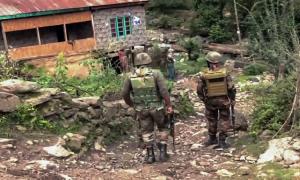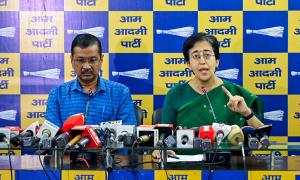The Calcutta High Court on Thursday pulled up the city police for their shoddy handling of the Rizwanur Rehman death case and directed the Central Bureau of Investigation to chargesheet all the seven accused.
Rizwanur, who married the daughter of affluent businessman Ashok Todi on August 18 last year, was found dead on September 21 next to a rail track at Dum Dum in Kolkata.
The incident sparked off widespread furore following which the High Court directed the CBI to conduct a probe into the case.
The CBI submitted its report on February 28 to the court, stating that Rizwanur had committed suicide, but recommended action against senior city police officers including the then police commissioner Prasun Mukherjee.
Justice Dipankar Datta, in a 120-page order, today asked the central investigative agency to file chargesheets against the seven accused, including industrialist Pradip Todi, A Saraogi, Pappu, besides the then deputy commissioner of police Ajay Kumar, assistant commissioner of police Sukanti Chakraborty and sub-inspector Krishnendu Das.
CBI questions Rizwanur's widow
The judge kept its order in abeyance for three weeks to enable the accused to appeal.
The judge also slammed the Criminal Investigation Department, which initially probed
the case, for going for a preliminary inquiry without filing an FIR.
The CID, he observed, wasted 14 days that was enough to provide favour to the accused and sufficient for tampering with evidence.
How Priyanka was pressurised to return home
This was not in accordance with the law and thus the CID had acted irresponsibly which was not expected of them, the court observed.
About the CBI's way of initiating the inquiry into the case, the judge observed that it was absolutely legal because it had filed the FIR on the basis of certain writ petitions, affidavits and documents available.
However, the court criticised the CBI for recommending a departmental inquiry by the state government against the accused police officers.
CBI report must speak the truth: Rizwanur's mother
Justice Datta stated that his observation in the case was that the local police stations in the city were for the poor and the city police headquarters at Lalbazar was for the rich.
Taking a serious view of the city police, the judge observed that from August 30, 2007 to September 9, 2007, when a married couple (Rizwanur and Priyanka) was seeking help from the police, the police action was totally unconstitutional.
Rizwanur committed suicide, says HC
The paper cuttings, CDs and documents in the case gave the impression, the judge observed, that the then police commissioner Prasun Mukherjee's press conference, held on the day after Rizwanur's body was found, had only added fuel to the whole thing.
Taking a strong exception to the then police commissioner Prasun Mukherjee's role, the court observed that he had not stated at his press conference the fact that Todi had met him and that Rizwanur and Priyanka had been called at the city police headquarters at Lalbazar.
It is conclusively inferred that the police had favoured the Todis and Mukherjee did not come with correct facts and he had misused his power.
The court strongly felt that the city police has shown a partial attitude in the case.








More from rediff